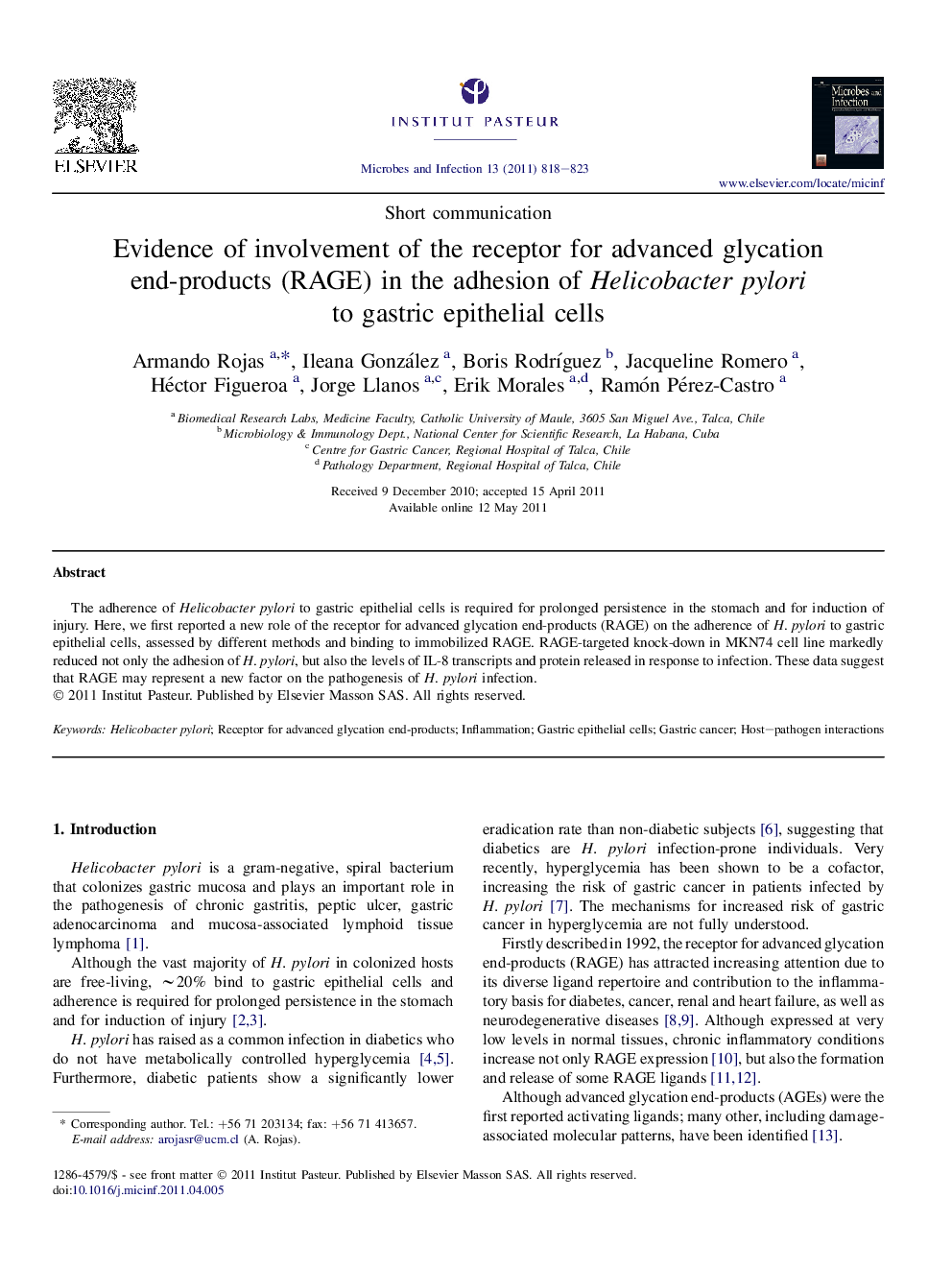| Article ID | Journal | Published Year | Pages | File Type |
|---|---|---|---|---|
| 3414908 | Microbes and Infection | 2011 | 6 Pages |
Abstract
The adherence of Helicobacter pylori to gastric epithelial cells is required for prolonged persistence in the stomach and for induction of injury. Here, we first reported a new role of the receptor for advanced glycation end-products (RAGE) on the adherence of H. pylori to gastric epithelial cells, assessed by different methods and binding to immobilized RAGE. RAGE-targeted knock-down in MKN74 cell line markedly reduced not only the adhesion of H. pylori, but also the levels of IL-8 transcripts and protein released in response to infection. These data suggest that RAGE may represent a new factor on the pathogenesis of H. pylori infection.
Keywords
Related Topics
Life Sciences
Immunology and Microbiology
Immunology
Authors
Armando Rojas, Ileana González, Boris Rodríguez, Jacqueline Romero, Héctor Figueroa, Jorge Llanos, Erik Morales, Ramón Pérez-Castro,
